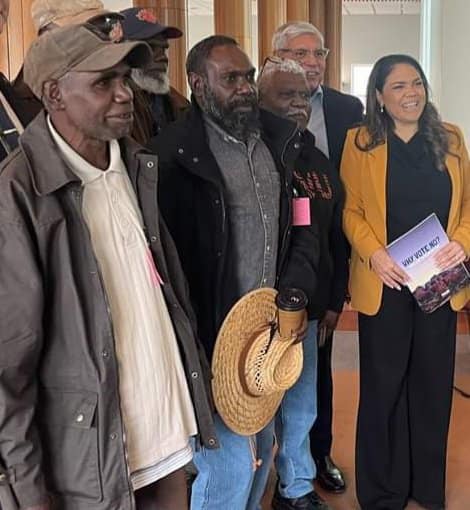The current Australian Federal Government has proposed amendments to the Australian Constitution to create a first nations “Voice” to parliament. There are multiple concerns about this. Many Australians are not happy about enshrining division by race in the Constitution, or granting special privileges to any group on the basis of race. It is not clear exactly how the Voice would operate; on what matters it would have the right to comment, how much notice parliament and executive Government would be required to take of any recommendations, what avenues of appeal there might be, how members of the Voice would be appointed, etc …
There are already multiple bodies which offer advice and guidance to government on matters relating to aboriginal and Torres Strait Islander people, with various degrees of representation from sub-groups and communities remote and urban. These are supported by tax-payers with over $30 billion of funding. Some aboriginal leaders have expressed the view that they do not need another voice in government. Instead, they say, they need ears that listen.
Two weeks ago an delegation of aboriginal people came to Canberra to talk with those in government proposing the Voice. They wanted to express the view there were better ways forward that did not divide Australia by race, and would mean better listening to the real needs of indigenous people. None of the mostly white proponents of Voice were willing to meet with them.

Australian Leader of the Opposition, Peter Dutton, got in trouble with some sections of the media a few days ago when he suggested that poverty, employment, and high levels of domestic violence and child abuse were more important to many aboriginal people than another body claiming to represent them.
Karl O’Callaghan, Police Commissioner of Western Australia believes Peter Dutton is right, and asked asked these questions:
“How would you react if your 11-year-old daughter had a sexually transmitted infection? How would you take the news that your daughter is up to 10 times more likely to be the victim of sexual abuse than others in her class? How would you feel if she was sexually abused and no one bothered to report it?
To most of us these situations are unthinkable and it would be difficult to fathom how we would react to them. This is the plight of hundreds of Aboriginal children in remote communities throughout Australia, and this is only half of the story.”
Senator Jacinta Nampijinpa Price, an aboriginal woman from the Northern Territory, also agrees. She has repeatedly asked for a halt to the seemingly endless stream of feelgood consultations and new voices, and for better listening and real action and solutions to poverty and abuse.
The choices are: division by race enshrined in the Constitution, and another large layer of bureaucracy with unspecified representation and powers, or real listening and real action to resolve issues. If you care about Australia and about justice for indigenous people, the answer seems clear. Vote no to racism, and yes to real answers.



Leave a Reply